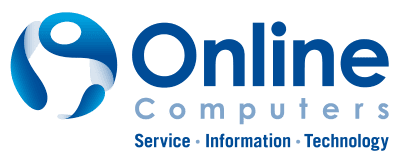Imagine buying a safe for your valuables. To your surprise, there’s no lock on the door. That safe is your computer if you don’t put a password to protect it.
When you put a lock on your safe, you put a layer of security. Add a latch bolt or a thumbprint reader, and you double your protection. The more layers you add, the harder it is for a thief to break open your safe. It’s not an impossible task, especially for a determined thief. But the difficulty of getting past several security precautions is enough to turn most thieves away.
Multifactor authentication (MFA) is cybersecurity’s equivalent of the lock, latch bolt, and thumbprint reader combination. This approach makes it more difficult for cybercriminals to access your computer.
Each device that connects to your IT network is a potential point of entry for an unauthorized user to infiltrate your system. And now that New Jersey businesses are shifting some of their employees to permanent remote work status, the need for tougher cybersecurity is greater than ever.
What is multifactor authentication?
MFA is a method for computers to verify a user’s identity in order to grant them access. A user needs to present two or more “factors” or pieces of evidence to prove that they are who they say they are. The three most common factors used in MFA are:
- Something you know – a particular piece of information only the user knows, such as a password, personal identification number, mother’s maiden name, etc.
- Something you have – an object only the user possesses, such as a key card, USB device, smartphone where a code can be sent, etc.
- Something you are – a physical characteristic of the user that’s identified through biometrics, such as fingerprints, voice and speech, iris patterns, etc.
Unsure how to keep your data secure?
Read our free eBook: 3 Types of Cyber Security Solutions Your Business Must Have and learn about the cyber security solutions you need in your business.
As MFA methods continue to evolve, more factors can be used to strengthen cybersecurity. For example, there’s already an identifier based on a user’s location. Another is a time-bound factor — users can authenticate themselves only within a specified period of time.
What are the benefits of MFA?
Businesses rely so much on technology these days. That’s why MFA is necessary for a mom-and-pop store as well as for a large enterprise. Choose an MFA solution that fits your IT infrastructure’s scale and complexity. Then you’ll reap the rewards of:
[img src=”/wp-content/uploads/2020/05/THE-BENEFITS-OF.png” alt=”benefits of MFA” link=”/wp-content/uploads/2020/05/THE-BENEFITS-OF.png”]
- Stronger security – MFA was created to improve cybersecurity. Passwords were the default security method for the longest time, but they have their weaknesses. Having several security factors in place compensates for these weaknesses. This will discourage hackers. Unless your business is a specific target of theirs, hackers will prefer to hit those with less resistance.
- Compliance completion – High-risk industries such as legal, healthcare, and financial services are popular targets of cybercriminals because of the amount of sensitive data they collect. That’s why these industries impose stringent regulations to protect their data, requiring businesses to put in place a robust authentication process. MFA will allow you to attain compliance.
- Simpler login – Remember how the more layers, the more difficult it is to hack your computer? More protection also makes it more difficult for your staff to log in. That’s why single sign-on (SSO) solution was invented. SSO uses MFA to authenticate the identity of a user logging in for the first time. But once they’re logged in, they are allowed access to multiple applications associated with their user profile, eliminating the need for multiple logins.
What should you consider before implementing MFA in your workplace?
If you choose to implement MFA to fortify your cybersecurity, here’s what you need to do first:
- Review your business’ cybersecurity risks. How extensive are they? And how much time, money, and effort can you spend to reduce those risks?
- Consider how much MFA will impact your business processes. Earlier, it was mentioned that too much protection makes it difficult for staff to log in. Without an SSO solution, having too much security will affect your staff’s productivity. But having too little will expose you more to security breaches.
- Plan for failure. No security system is foolproof, and your staff is prone to making mistakes. What will you do should you lock yourself out of your own system? What if an employee loses the device registered to verify MFA requests? You need a fallback plan to regain access to your system.
Now that almost the whole world has shifted online for business and for socialization, experts are warning that a massive cybersecurity attack may happen during this pandemic. It’s urgent that you beef up your business’s cybersecurity systems and protocols. Make sure to include an MFA solution.
Do you want to implement MFA in your New Jersey business? Then partner with us at Online Computers. We’ll set up a security solution that’s right for your needs. We provide proactive support and state-of-the-art solutions to over 135 organizations, including businesses, healthcare providers, educational institutions, and nonprofit organizations. If you’re in and around the Hanover, Morristown, and Madison areas, contact us today.

